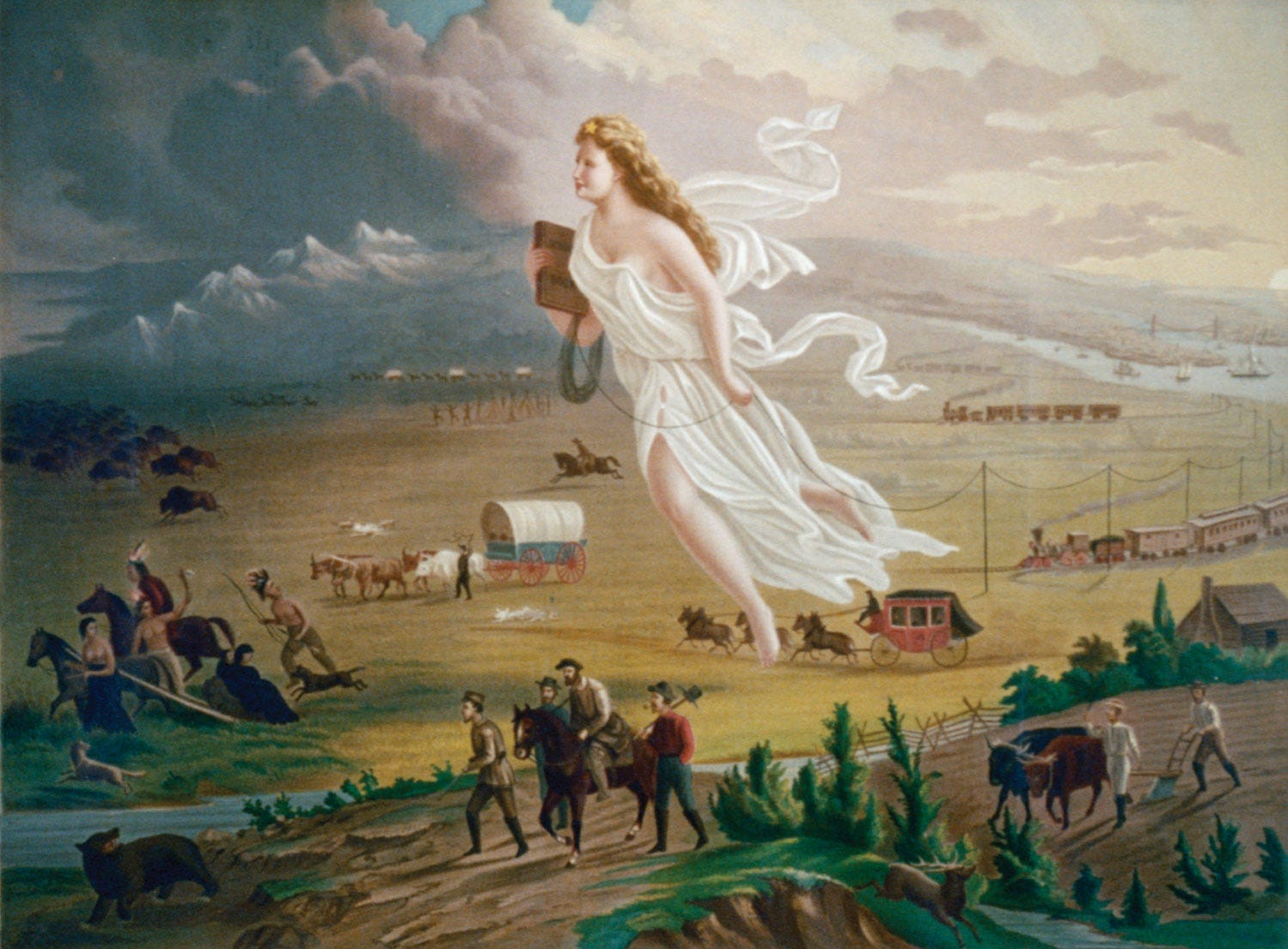A curious item at best. Everyone can see the big picture, but then try to address it all with big hand waves. The problem is that it requires local attention, hte more intense the better. Permaculture teaches us about swales. Mob grazing teaches us about beating the ground with hoof pits all holding rain water.
Digging deep catchment wells drives water during the rainy season into the ground water resovoir. These are not hard ideas and the ecological impact is massive.
Most agritech is very much about grooming the surface of the land which often then allows the water table to drop. Obviously a bad idea. That this alone can be recovered is useful to know, but needs manpower to apply properly.
.
Food and Empire
America has a disease. Plant-based diets aren’t the cure.
Racism, environmental decline, animal welfare, and human health are tied in a Gordian Knot around the issue of food. Common sense would suggest untying it be left to people with demonstrated expertise in its varying facets:
People of color who are most familiar with the intricate nuances of American racism
Livestock and hunting cultures around the world that regard the sanctity of all life (animal and plant) equally and in ways utterly unfamiliar to euro/western minds
Members of strong, older food cultures that enjoy robust health without an industry devoted to nutrition
With that in mind, it’s curious that messaging on this intractable problem is dominated by the people arguably least qualified to speak: White non-experts hailing from a nation founded explicitly on racism, saddled with a schizophrenic dominant food culture extracted from an environment in utter freefall
Jonathan Foer — a novelist and creative writing professor — is the latest in a long line of authors continuing in this tradition, recently handed a bullhorn in the form of a New York Times opinion piece. In it, he buries a couple of good-if-copy-pasted points (e.g. Americans probably eat too much protein, CAFO agriculture is a huge problem) inside a mass of misinformation about animal agriculture’s share of GHG emissions, clumsy pairings of racial justice with conscientious consumerism, and lazy dismissals of alternatives — all bound together by the collective gravity of a litany of omissions.

The sin that drives America’s food/race/environment problem isn’t animal agriculture. It’s the elephant in the room that no one wants to talk about: the United States stole far and away more land than ‘necessary’ from its indigenous inhabitants, and our modern food system is the end result of 243 years spent justifying it.
Foer’s myopic obsession with CAFO agriculture has him posing farmer welfare as a stent to keep the arteries of animal agriculture open under the weight of a massive oversupply. He fails to see the much bigger, uglier picture: farmer welfare is a device that keeps 915 million acres of Indian land justifiably occupied under the tired rubric of “feeding the world.” It existed well before CAFOs enabled Americans to eat their bodyweight in meat every year. 815 million people in the world are suffering from food insecurity for a host of reasons, but American farmers failing to produce enough — necessitating a market-agnostic ballooning of the supply via subsidies and crop insurance — isn’t one of them, and never has been. We’ve always produced more than enough food in this country.
While other nations adopt quotas and other imperfect systems to moderate the supply of food with something more humane than unregulated free markets, the U.S. is still stuck in a Butzian hellscape of planting fencerow to fencerow just because we have the land for it. Amid chronic oversupply, during national/global emergencies or complete calm, we continue to bail out farmers, most of whom are near-millionaires (including our vaunted “small family farmers”), year after year after year. Agriculture and Defense are the only industries in America that enjoy a perennial, unconditional bailout. And they get it because they are, together, the foundation of American Imperialism.
We’re not mining water, killing soil life, and obliterating biodiversity because we insist on animal agriculture. We’re doing it because soybeans and corn are easy to produce at large scale and justify enormous amounts of land being occupied… but those commodities have to go somewhere. If they don’t go into cattle, they’re going to go somewhere else. We’ve invented whole classes of products no one wants (hi, ethanol) just to provide a destination for crop surpluses.
The vegan claim that the end of animal agriculture will slay the scourge of monoculture by freeing up cropland devoted to finishing cattle in feedlots is completely divorced from both historical precedent and modern reality. America will absolutely find, or invent, somewhere else to send the surplus. This is why big meat integrators like Tyson are investing in things like plant-based “meat” that rely on those same surpluses: they’re not self-disrupting; they’re making bets on where the commodities will go next.
Someone actually living their life at the intersection of food, agriculture, race, and health would likely suggest a far less clumsy, short-sighted, shallow, and consumerist solution to these problems than “eat less meat.” Those solutions might include:
Redirecting farmer welfare to regional, worker-owned agricultural collectives and co-ops and distribution vehicles, and organizations that support these efforts
Deep research into ancestral foodways and funding of localized food sovereignty efforts
Land/water repatriation
Funding true innovations like multi-tier ocean farming and tech that helps polycultures scale
Making substantial overhauls to fish and game regulations to restore wild resources to levels where they can — once again — serve as serious food sources
Addressing endemic poverty that keeps nutritious diets beyond the reach of food insecure people even when they have access to good food
But that’s not going to happen as long as we’re handing the reins to people who don’t know what they’re doing, recycling stale ideas, and arguing that their own poorly informed values should be proselytized to the rest of the world for its own good. That’s how we got in this mess in the first place.
Chris Newman is an ehakihet (farmer/land-protector) in the Northern Neck of Virginia. Acts of kindness to continue this work are always appreciated on Venmo @sylvanaquafarms

No comments:
Post a Comment